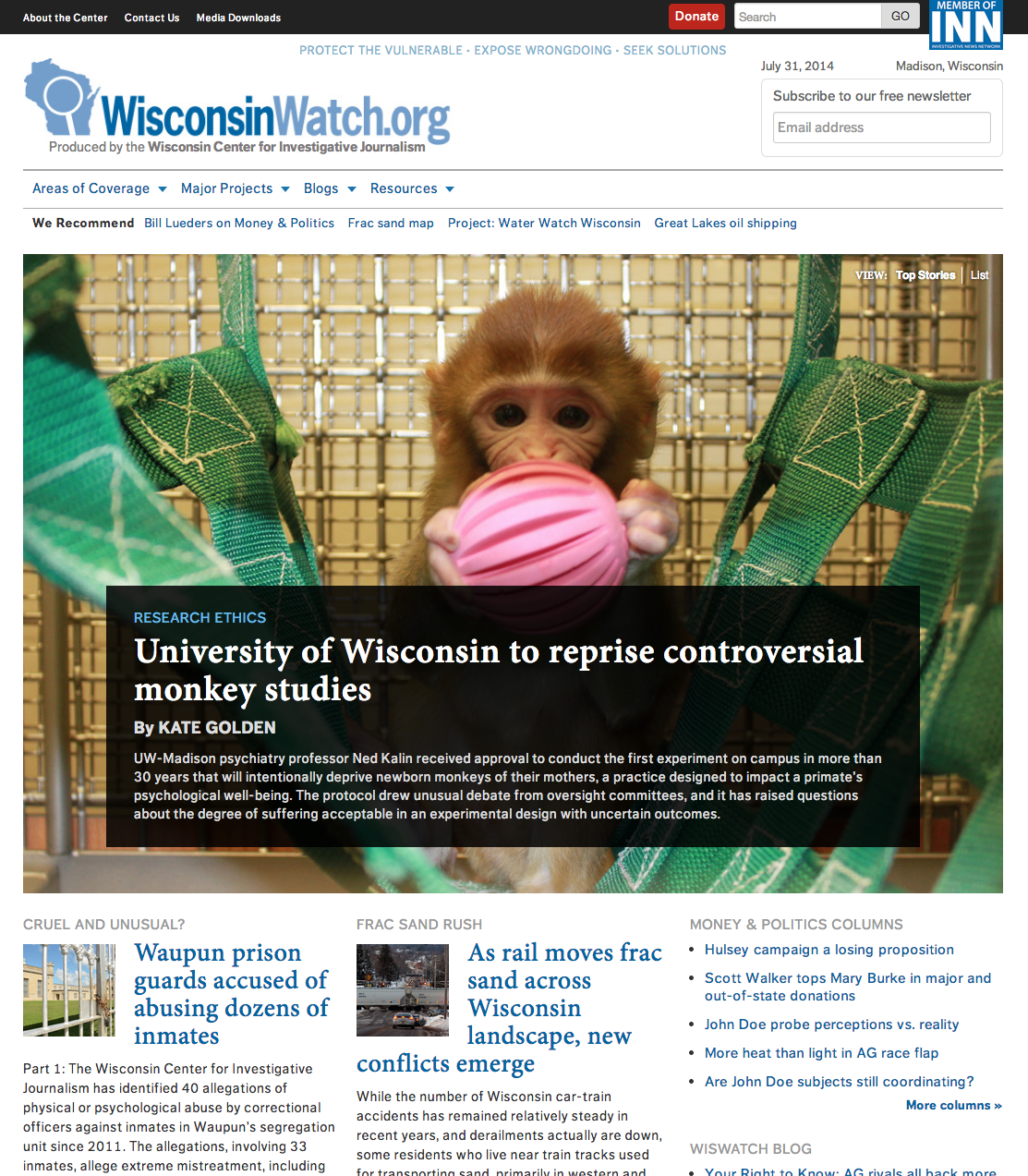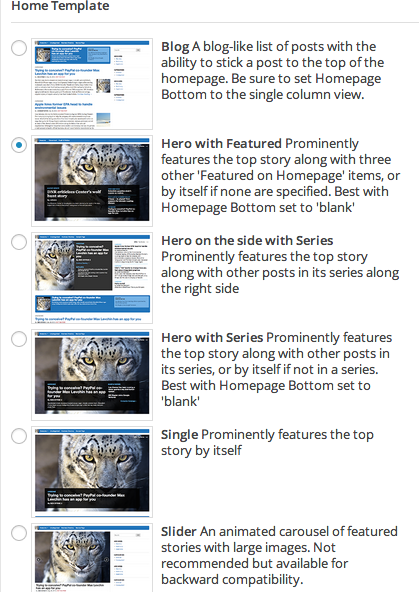Just before making an announcement last week, the Investigative News Network’s Adam Schweigert tweeted:
Learning the hard way that it’s better to never give anything away for free, creates way too many false incentives.
— Adam Schweigert (@aschweig) July 31, 2014
INN gives a lot away for free: Schweigert’s team offers web hosting and tech support to dozens of nonprofit local news websites, all on the back of Largo, their open-source WordPress framework. But now INN’s hoping for something in return, which is why Schweigert is starting a consulting service inside INN that aims to provide custom tech solutions to both members and non-members — with the latter subsidizing the former. (INN is primarily funded by foundation grants.)
Schweigert explains the motivation for starting the service in a blog post:
It’s hard for us to help every member individually and there are many member (and non-member) organizations who would like us to do more and have expressed the willingness to pay for our services.
A skeptic might ask whether INN will continue to offer the same level of free service to its members, but Schweigert says they’ll maintain “a reasonable amount of support” at no cost. Members will have to pony up for “more assistance,” which is understandably vague coming from a team that doesn’t quite know what they’re getting into yet. But a consulting developer from INN will be a relative steal for member news orgs at $50 an hour — below cost for INN. They plan to subsidize this rate by asking for-profit institutions for $150 an hour. (Non-member nonprofits can expect $85 an hour.)
Largo — a WordPress backend built on NPR’s open-sourced Project Argo — offers a number of customization options, but Schweigert says most of their members still want a little more tweaking. In addition, non-members — like ex-Patch employees striking out on their own — also frequently contact them for help with Largo. INN previously directed these requests to outside contractors. With the consulting service, anyone can get a developer at a reasonable rate who understands the product they’re customizing. So rather than hiring in-house, or outsourcing completely, INN clients will have a solution that lies somewhere in between.Schweigert envisions the consulting operation as a “co-op” model. For example, one INN developer might split, say, 10 hours per month on each of a handful of member sites, or support a site for a specific project while improving INN’s open-source tools during downtime. He also imagines INN developers playing a role in higher-level tech decisions for their members, as well as providing training modules, documentation, and support infrastructure. In addition, Schweigert hopes the team will get to work on data-oriented and multimedia story production, parachuting in for special one-off projects and microsites.
INN’s paid consulting strategy comes on the heels of a sleeker redesign for Largo, which debuted on the Wisconsin Center for Investigative Journalism’s WisconsinWatch.org in late June. Elements of the redesign hint at INN’s desire to service a greater diversity of organizations.
 There’s a fixed top bar with a red “Donate” button, but that doesn’t mean this framework is only useful to nonprofit publishers. The old Largo provided text-heavy “blog,” “newspaper,” and “carousel” layout options; the new Largo’s out-of-the-box templates are more image-centric and mobile-friendly.
There’s a fixed top bar with a red “Donate” button, but that doesn’t mean this framework is only useful to nonprofit publishers. The old Largo provided text-heavy “blog,” “newspaper,” and “carousel” layout options; the new Largo’s out-of-the-box templates are more image-centric and mobile-friendly.
Schweigert says that the design goal was to “call more attention to the big story.” Since many INN members only publish a few big stories a month, the Largo revamp envisions the homepage as more like a magazine cover than a newspaper homepage. This style, he notes, could be useful for any number of small- to medium-sized publishers. (So far, Wisconsin Watch is the only member running on the new version of Largo.)
 The biggest variable in the execution of the new service is INN’s tech bandwidth. INN powers over 30 sites with a very small team, leaving them little time for member-specific requests. They hope that “even a nominal fee” will help them expand their capabilities — indeed, they’re currently looking to add a third full-time designer/developer to their handful of interns, fellows, and contractors. Even so, there’s a potential that they’ll end up long on work and short on staff, which is why the training component is crucial. Without it, Schweigert says, “we can’t scale this. We would be answering emails all day.”
The biggest variable in the execution of the new service is INN’s tech bandwidth. INN powers over 30 sites with a very small team, leaving them little time for member-specific requests. They hope that “even a nominal fee” will help them expand their capabilities — indeed, they’re currently looking to add a third full-time designer/developer to their handful of interns, fellows, and contractors. Even so, there’s a potential that they’ll end up long on work and short on staff, which is why the training component is crucial. Without it, Schweigert says, “we can’t scale this. We would be answering emails all day.”
In the short term, Schweigert says the focus is on doing paid work for members. Though the structure of the service is more fragile without non-member revenue, it can exist either way. If demand from non-members becomes overwhelming, Schweigert says he would consider hiring subcontractors, but he’s not interested in agreeing to projects “just for the sake of taking work,” as many consultants might.
When we spoke to Schweigert last year, he suggested that the Largo project was asking “What should nonprofit investigative news organizations look like on the web?” Now it seems that Largo has bigger ambitions, looking beyond design for nonprofit investigative news to a diversity of clients.